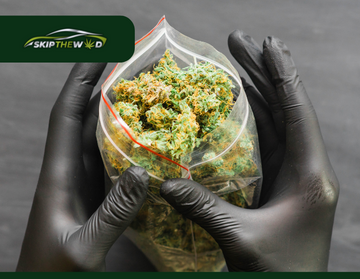Pain management is a critical aspect of healthcare, impacting millions of individuals globally. Traditionally, opioids have been the go-to solution for managing severe pain; however, their addictive nature and the opioid crisis have led to a search for safer alternatives. Among these alternatives, cannabis has gained attention for its potential benefits in pain relief. This article examines the ongoing research comparing cannabis and opioids, exploring their effectiveness, safety profiles, and implications for patients seeking pain relief.
Understanding Pain and Its Management
Pain is generally divided into two primary types: acute and chronic. Acute pain is a temporary condition, often resulting from injury or surgery, while chronic pain persists over time, frequently without a clear cause. Chronic pain can lead to significant impairments in daily functioning, emotional well-being, and quality of life. As a result, effective pain management strategies are crucial for improving patients’ overall health outcomes.
Opioids: The Traditional Pain Relief Option
Opioids are a class of drugs derived from the opium poppy, commonly prescribed for moderate to severe pain relief. These medications function by attaching to particular receptors in the brain and spinal cord, thereby diminishing the sensation of pain. Common opioids include:
- Morphine
- Oxycodone
- Hydrocodone
- Fentanyl
While effective in managing pain, opioids carry significant risks, including:
- Addiction and Dependence: Long-term use can lead to physical dependence and addiction, characterized by compulsive drug-seeking behavior.
- Overdose Risks: Opioids can depress the respiratory system, leading to overdose and potentially fatal consequences, especially when combined with other depressants like alcohol.
- Side Effects: Common side effects include constipation, nausea, dizziness, and drowsiness, which can further complicate patient care.
The opioid crisis has prompted healthcare providers and patients to reconsider the long-term implications of opioid use, leading to an increased interest in alternative pain relief methods.
Cannabis: A Potential Alternative for Pain Relief
Cannabis contains various compounds, known as cannabinoids, that interact with the body's endocannabinoid system to modulate pain perception. The two most well-known cannabinoids are:
- Tetrahydrocannabinol (THC): The psychoactive component of cannabis, known for its pain-relieving and euphoric effects.
- Cannabidiol (CBD): A non-psychoactive component, often praised for its anti-inflammatory and analgesic properties without the intoxicating effects associated with THC.
Research on Cannabis for Pain Management
Numerous studies have examined the efficacy of cannabis in managing pain, with mixed results. However, emerging research highlights several potential benefits:
- Effectiveness in Chronic Pain: A comprehensive review published in the Journal of Pain indicated that cannabis may provide effective relief for chronic pain conditions, such as arthritis, multiple sclerosis, and neuropathic pain. Many patients report reduced pain levels and improved function when using cannabis compared to traditional opioids.
- Reduced Opioid Consumption: Some studies suggest that patients using cannabis for pain management may reduce their reliance on opioids. A study in JAMA Internal Medicine found that states with legalized medical cannabis saw a significant decline in opioid prescriptions. This trend indicates that cannabis may serve as a complementary therapy, allowing patients to lower their opioid dosages.
- Fewer Side Effects: Compared to opioids, cannabis generally has a more favorable side effect profile. While it can cause dizziness and sedation, the risk of fatal overdose is significantly lower. Additionally, cannabis is associated with fewer gastrointestinal side effects compared to opioids, making it a more tolerable option for many patients.
- Personalized Treatment Options: The variety of cannabis strains and formulations allows for tailored treatment plans based on individual patient needs. Patients can select products high in THC for immediate relief or opt for CBD-dominant strains to manage inflammation without intoxication.
Challenges and Considerations
While cannabis shows promise as a pain relief alternative, several challenges remain:
- Variability in Products: The cannabis market can be inconsistent, with significant differences in potency and quality among products. Patients must educate themselves on sourcing from reputable dispensaries, such as Skip the Weed, which offers a range of high-quality options for pain relief in Winnipeg.
- Lack of Standardization: Unlike pharmaceuticals, cannabis lacks standardized dosing guidelines. Patients may find it challenging to determine the appropriate dosage for their specific needs.
- Legal and Regulatory Issues: The legal status of cannabis varies by region, affecting patient access and the ability of healthcare providers to recommend it. In Winnipeg, where cannabis is legal, local weed stores and cannabis delivery services have made access more convenient.
Patient Perspectives: Choosing Between Cannabis and Opioids
Deciding between cannabis and opioids for pain management is a deeply personal choice that requires careful consideration of various factors, including:
- Severity and Type of Pain: Patients with severe acute pain may still benefit more from opioids in the short term, while those with chronic conditions might find cannabis more effective.
- Previous Experiences: Patients who have struggled with opioid dependence may prefer exploring cannabis as a safer alternative.
- Side Effects and Tolerance: Each patient’s response to medications varies, and some may tolerate cannabis better than opioids or vice versa.
Conclusion
The growing body of research on cannabis and opioids as pain relief options presents a compelling case for exploring alternatives to traditional pharmaceuticals. While opioids remain a powerful tool for managing severe pain, the risks associated with their use highlight the importance of considering other options.
Cannabis has emerged as a promising alternative, with studies indicating its effectiveness in managing chronic pain and reducing opioid consumption. However, patients must navigate the challenges associated with cannabis use, including product variability and lack of standardization.
At Skip the Weed, we understand the importance of finding the right pain relief solution for our customers. Our weed dispensary in Winnipeg offers a diverse selection of cannabis products designed to meet individual needs, whether you’re seeking high-quality flower, oils, or edibles. With our convenient cannabis delivery service in Winnipeg, accessing your preferred pain management options has never been easier. Explore our offerings today and take the first step toward reclaiming your quality of life through safe and effective pain relief alternatives.









